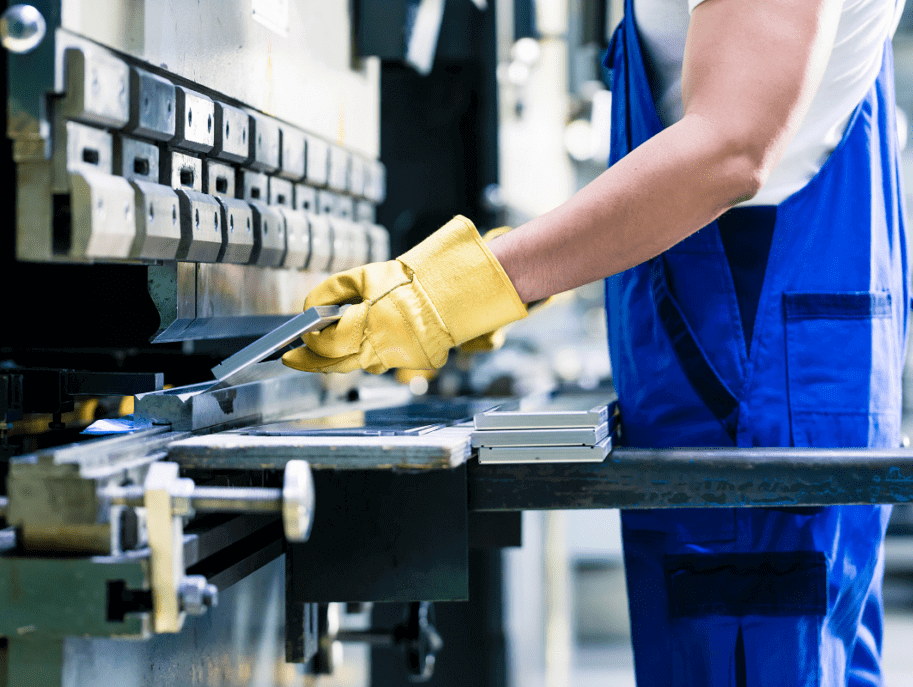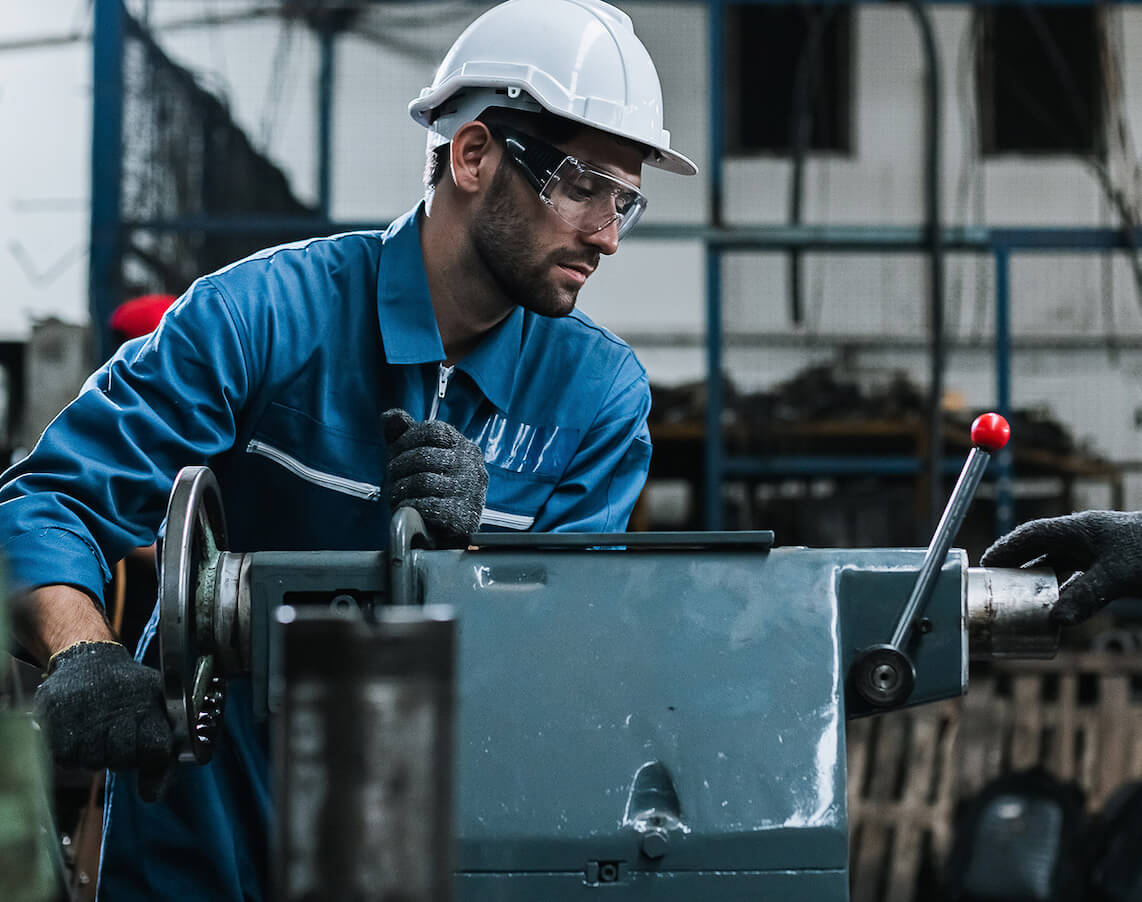Faulty Machinery Accident Claims
If you work with defective, faulty, broken, or even the wrong tool or machinery, this could cause an serious accident or injury. Accidents at work involving machinery and work equipment are a common cause of injury. If you have suffered an injury whilst using work equipment or machinery you may be entitled to make a claim for compensation.
We offer free initial advice for handling work accident claims. When it comes to take on accident at work cases, we can offer a No Win, No Fee service. This means you don’t have to pay us anything if we won’t be able to secure compensation for you.
What causes machine related injuries/accidents?
Unfortunately, there are many things that can lead to machine related injuries at work, this may include the following:
- Poor Training or Supervision: Employers must provide proper training to staff to ensure that they understand how to use and operate the work equipment safely. Lack of training or supervision for people using dangerous machinery may lead to accidents.
- Poor Maintenance: Work equipment should be in a good working order and should be maintained regularly. Employers have a duty to make sure that a safe system of work is in place at all times. If machinery has not been looked after properly, faults and failures can occur which may lead to injuries.
- User Error: If a co-worker is not following guidelines on how to operate a machinery, it could lead to an accident.
- Protective Equipment: Employers must provide personal protective equipment (PPE) to their employee to make sure they are safe while on the job. PPE may include hard hats, gloves, goggles, boots and high-vis clothing.
- Machine Failure: Mechanical equipment should be checked regularly & electrical equipment must be PAT tested regularly to make sure they are safe to use.
- Defective or Unsuitable Ladders, Working Platforms or Scaffolding: In many cases falls can occur because the equipment is unsuitable for the work being carried out such as over-reaching on an unsuitable ladder.
- Unsuitable Work Equipment: Using the wrong tools for a job can lead to injury. This could be due to lack of proper staff training or due to the fact that unsuitable equipment was provided by the employer.
- Sharp Edges: Over time, machines can sustain damage which results in once smooth edges becoming sharp. If you cut yourself on a sharp edge that hasn’t been repaired, you could claim.
- Falls From Height: You might be eligible to make a claim if you’ve fallen from height because you were working on a damaged cherry picker or scissor lifted that jolted or collapsed.
What are the most common injuries caused by machinery?
There can be many injuries caused by machinery, from minor to severe and even life-threatening. You may be able to claim compensation if you’ve had machine related injuries. Some example of machine injuries are:
- Cuts and Lacerations: Cuts, lacerations and crushing injuries can happen when working with faulty machinery or without proper training;
- Bruising and fractures: You may sustain bruising and fracture if you struck by a machine, or if a limb or finger is caught in a moving machinery part;
- Burns: You can suffer burn on your skin by hot steam or freezing cold elements or after getting in contact with hot surfaces;
- Electrical Shocks: If a machine is poorly maintained or not tested regularly, you can suffer electric shocks.
- Eye Injuries: Working without PPE can be dangerous and you can sustain eye injuries if a faulty part strikes in your eye;
- Head, Neck and Back Injuries: You can sustain head, neck and back injuries if you collide with forklift truck, struck with falling objects and manual handling.
Looking for some help?


What are the main causes of machinery accidents?
Machinery safety and proper equipment maintenance should be of primary concern to all employers. Under the Supply of Machinery (Safety) Regulations 2008 and 2011, all machinery purchased and installed in a workplace should:
- Have a UKCA mark that guarantees it complies with the relevant health and safety regulation;
- Include instructions written in English;
- Have a declaration of conformity from the manufacturer, stating it is fit for the intended purpose.
Before starting to use any machine at the workplace, employers should:
- Check that it is well designed, free from defects and suitable for the work;
- Ensure that static machinery is fittingly installed and stable;
- Develop a safe system for using and maintaining the machine;
- Ensure it has proper guards to prevent access to dangerous parts;
- Ensure control switches are marked and show what they do;
- Make sure to have emergency stop controls where necessary;
- Provide adequate training and equipment to those using the machinery.
The main items that can cause a faulty machinery accident and need to be regularly verified include:
- Machine guards and covers
- Stop controls
- Electrical equipment
- Steps and scaffolding
- Protective equipment
- Hand and power tools
- Safety ropes and harnesses
Looking for some help?
Why You Need a Work Accident Claim Solicitor: Their Role in Your Claim
Getting legal representation from an experienced solicitor for workplace injuries is important to protect your rights and maximise compensation. A skilled solicitor can assess the circumstances of your work accident injury, gather evidence for your claim, and negotiate with insurers on your behalf. They also guide you through the legal process, ensuring deadlines are met and your rights are upheld throughout.Our work accident solicitor specialising in workplace injuries can be a tremendous asset. They can help in:
-Assessing the validity of your claim.
-Gathering necessary evidence and documentation.
-Negotiating with insurance companies.
-Representing you in court, if necessary.
What Does It Cost to Make a Work Accident Claim? (No Win, No Fee)
We handle your work accident claim on a ‘No Win, No Fee’ basis. Our charges depend on the type of case and are usually a percentage of the compensation we recover for you. Where we offer “No Win, No Fee,” clients typically pay 25% plus VAT of the compensation amount and any non-recoverable disbursements. If we cannot secure compensation for you, you owe nothing.
If you or someone you know has sustained cuts, laceration, or scarring injuries, feel free to contact us. You can also request a free, no-obligation callback through our website.
How long do you have to make an accident at work claim?
Work accidents can cause serious injuries. This is because most working environments have a high accident potential when not maintained – or if staff haven’t been trained properly. You typically have three years from the date of the accident or diagnosis of a medical condition to make an injury at work claim. However, there are some exceptions to this rule:
- Psychological Trauma or Mental Capacity – if you or your loved one no longer has the mental capacity to make a claim themselves (often the case following a traumatic brain injury), then in these circumstances there is no time limit for making a compensation claim.
- Accidents While Working Abroad – if your accident happened while working abroad, the time limit for making a claim may be shorter.
- Defective Work Equipment – if your injury was caused by a piece of equipment that had a manufacturing defect, the time limit may be different. If you’ve been injured with an accident at work it’s best to contact us as soon as possible, to ensure we can begin your claim within the relevant time limits.
- Under 18s – If you or a loved one suffered an injury at work when they were under 18 (including if the injury happened while in full or part time employment, as an apprentice or on work experience), a claim can be started at any point up until their 21st birthday. However, in cases where mental capacity has been lost, then no time limit applies.
What do i need to prove in an accident at work claim?
If you’ve been injured at work in the last three years and it wasn’t your fault, you may be able to claim compensation. Injuries, medical condition and work-related illnesses are often caused by employers and managers failing to follow proper health and safety rules.
First, you need to prove that the accident that caused your injury (or medical condition) was not your fault. Second, the evidence must demonstrate that the accident was caused by the negligent action – or inaction – of your employer.
You can call us or request a free callback and we will assess your accident at work claim.
Am I Eligible To Make An Accident At Work Claim?
In the UK, employers and business owners are legally responsible for the welfare and safety of their staff and any visitors to their premises. The law states that all businesses must compulsorily hold employer liability insurance and conform to Health & Safety regulations to ensure that they meet those requirements/guidelines.
If your employer failed to meet their responsibilities and their negligence has caused injury (or medical condition), you can claim compensation by filing an accident at work claim. If your claim for a workplace injury is successful the compensation would be paid from the employers liability insurance. In certain circumstances, even if you contributed to your own accident at work, you may still be able to claim injury compensation if your employer is deemed to have been the main instigator of your personal injury or medical condition at work.
You can call us or request a free callback if you have any questions about claiming compensation for an accident at work.
Frequently Asked Questions (FAQs)
We are here for your help!
If you, a friend, or a family member has been involved in a workplace accident that caused an injury or medical condition, you may be able to claim compensation.
Our dedicated workplace accident solicitors will work to secure the compensation you deserve. Your settlement can help cover private medical treatment and any time taken off work.
You have three years from the date of the injury to make a work accident compensation claim.

